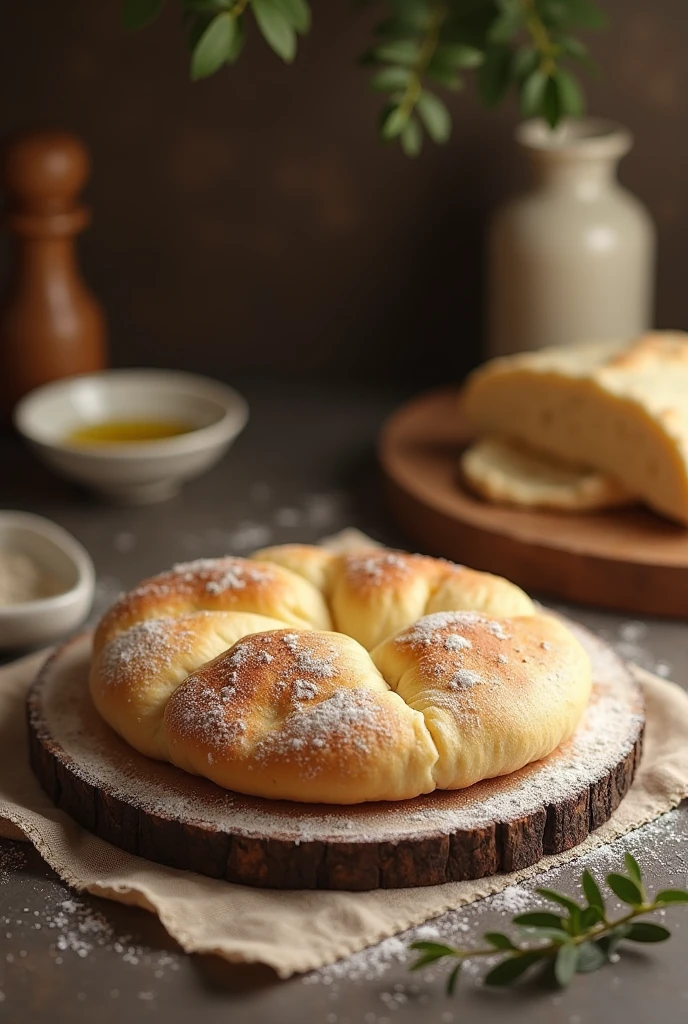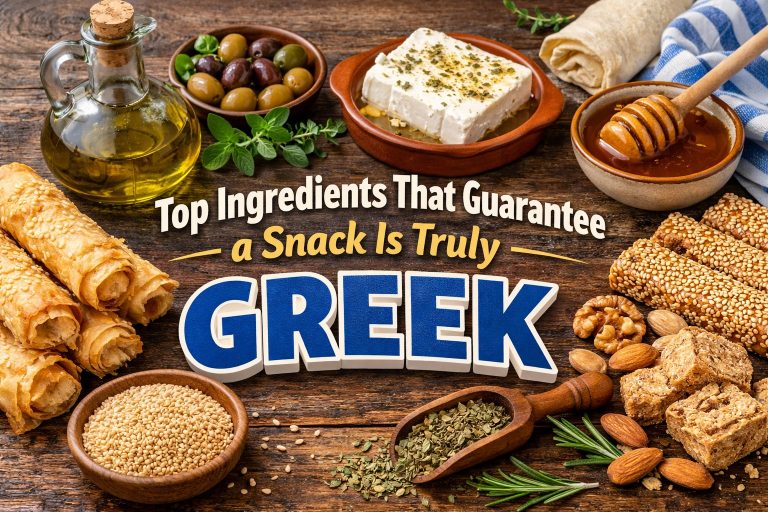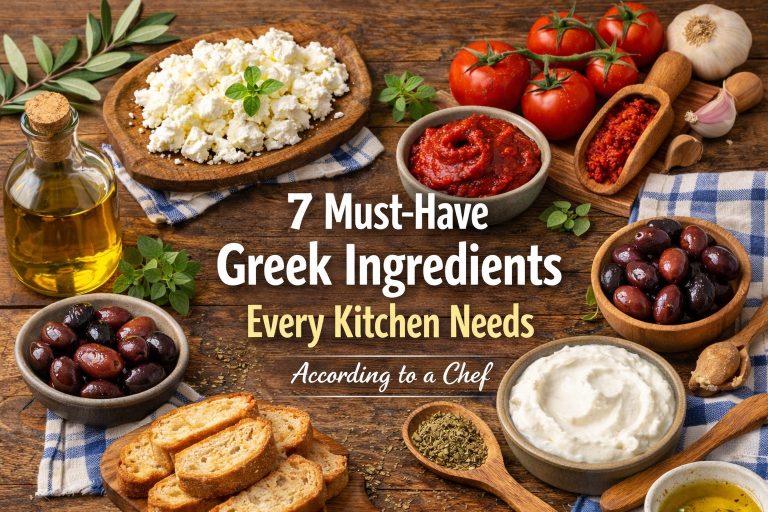
Lagana is a delightful and traditional Greek flatbread that plays a significant role in Greek culture, particularly during Clean Monday (Καθαρή Δευτέρα), which marks the start of Lent. This special bread is not only a culinary treat but also a symbol of renewal and community, making it a cherished part of Greek heritage.
What is Lagana?
Lagana is a flatbread made from simple ingredients, including flour, water, yeast, olive oil, and salt. Unlike other breads that may be fluffy or airy, Lagana is typically flat and slightly thicker than pita. It is often topped with sesame seeds, which add a delightful crunch and a nutty flavor to the bread. The texture is soft and chewy, making it perfect for dipping or enjoying alongside various dishes.
Historical Significance
The origins of Lagana can be traced back to ancient Greece, where bread was a fundamental part of the diet. The word “laganon” refers to a type of flatbread that was common in historical Greek cuisine. Traditionally, Lagana is baked on Clean Monday, which represents a fresh start and the beginning of the fasting period leading up to Easter. This day is a time for families and friends to come together, often enjoying picnics with various plant-based foods, making Lagana a central part of the celebration.
How is Lagana Made?
Ingredients
The basic recipe for Lagana includes:
- Flour: Typically all-purpose flour, although whole wheat can be used for a healthier version.
- Water: Essential for hydrating the flour and activating the yeast.
- Yeast: Fresh or dry yeast is used to help the dough rise.
- Olive Oil: Adds flavor and moisture to the bread.
- Salt: Enhances the overall taste.
- Sesame Seeds: Used for topping, adding flavor and texture.
Dough Preparation
- Mixing Ingredients: Combine the flour, water, yeast, olive oil, and salt in a large bowl. Mix until a dough forms.
- Kneading: Knead the dough for about 10 minutes until it becomes smooth and elastic. This step is crucial for developing the gluten, which gives the bread its texture.
- Rising: Place the dough in a lightly oiled bowl, cover it with a cloth, and let it rise in a warm place until it doubles in size (about 1-2 hours).
Shaping and Baking
- Shaping: Once the dough has risen, gently punch it down to release air. Divide it into equal portions and flatten each piece into a round or oval shape.
- Topping: Place the shaped dough on a baking tray lined with parchment paper. Brush each piece with olive oil and sprinkle sesame seeds on top, pressing them gently into the dough.
- Baking: Preheat the oven to around 200°C (400°F) and bake the bread for about 20-25 minutes, or until golden brown. The result should be a crispy exterior with a soft, chewy interior.
Serving Suggestions
Lagana is incredibly versatile and can be served in a variety of ways:
- With Dips: Pair Lagana with traditional Greek dips such as hummus, tzatziki (yogurt and cucumber dip), or melitzanosalata (eggplant dip). These complement the bread beautifully and enhance the flavors.
- Accompanied by Vegetables: Fresh vegetables like olives, cucumbers, tomatoes, and bell peppers are perfect accompaniments, creating a balanced meal.
- As a Snack: Enjoy Lagana on its own, drizzled with extra virgin olive oil and sprinkled with sea salt. It also makes a great base for sandwiches or wraps.
Cultural Impact
Lagana is not just food; it is a part of Greek social life. On Clean Monday, families and friends gather for picnics, enjoying vegetarian and vegan dishes alongside Lagana. This day is often filled with laughter and camaraderie, as people celebrate the start of Lent by sharing meals outdoors. The bread symbolizes unity and tradition, reinforcing the importance of community in Greek culture.
Conclusion
Lagana is more than just a flatbread; it is a delicious representation of Greek history and culture. Whether enjoyed during Lent or as a tasty accompaniment to various meals, its unique flavor and texture make it a beloved staple in Greek cuisine. By embracing Lagana, you not only savor a traditional dish but also partake in the rich tapestry of Greek culinary heritage. So, whether you bake it at home or enjoy it at a local taverna, Lagana is sure to delight your taste buds and connect you to the vibrant culture of Greece.



